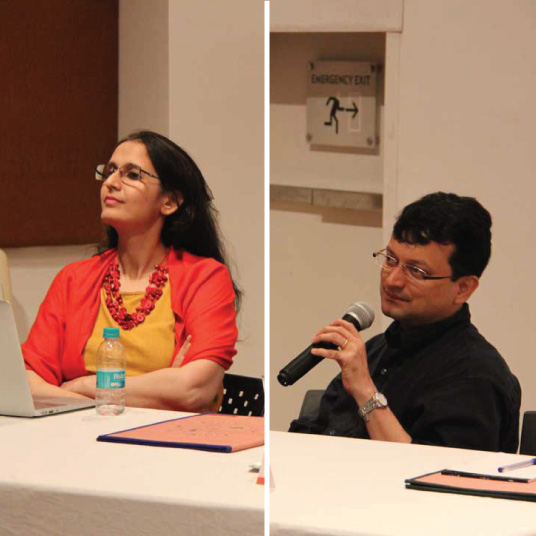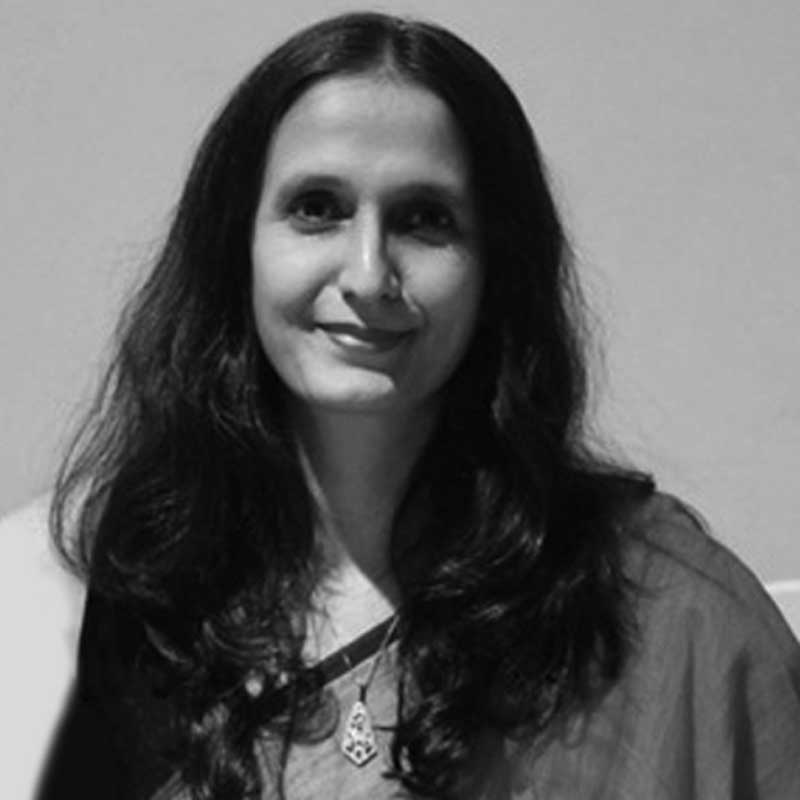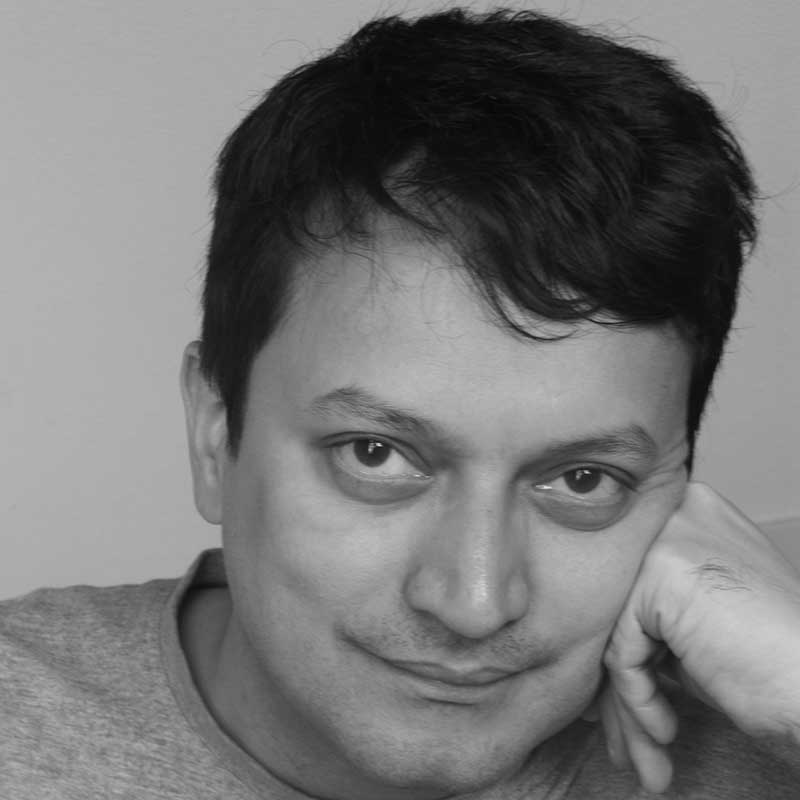
In this session, the speakers addressed the role that abstraction has played in a politics of utopia variously represented in diverse cultural and political contexts. The first phase of this history included the contributions of Mondrian, Kandinsky, Lissitzky and their contemporaries in the early 20th century; the second phase embraced the post-World War II period dominated by New York School artists such as Barnett Newman, Mark Rothko and Jackson Pollock, and their champion, the critic Clement Greenberg; the third phase extended to an appreciation of the radical abstractionist practices of artists in Brazil, India and elsewhere in the postcolonial world.
Participants:
Nancy Adajania (cultural theorist and curator): ‘Abstraction as Politics: From Alfred Barr through Lygia Clark to Zarina Hashmi and Navjot’
Ranjit Hoskote: (cultural theorist and curator): ‘The Greenberg Gambit: Abstract Expressionism, American Painting, and the Cultural Politics of the Cold War’

Nancy Adajania is a cultural theorist and independent curator based in Mumbai. She was joint artistic director of the 9th Gwangju Biennale, 2012, and is a contributor to the FORMER WEST research, conference and exhibition project.
Adajania has written and lectured extensively on art and the public sphere, and transcultural art practices all over the world. Her latest book, ‘The Thirteenth Place: Positionality as Critique in the Art of Navjot Altaf’, was published in 2016. She has curated a number of exhibitions, most recently ‘No Parsi is an Island’ at the National Gallery of Modern Art, New Delhi in 2016. Adajania is the editor of the monograph Shilpa Gupta in 2010 and co-author of The Dialogues Series in 2011. She was research scholar-in-residence at BAK/ basis voor actuele kunst, Utrecht, 2010 and 2013. Adajania is a member of the faculty for the Art Criticism and Theory Course at Jnanapravaha, Mumbai.

Ranjit Hoskote is a cultural theorist, curator and poet based in Mumbai. He is the author of 30 books, including a biography of Jehangir Sabavala, Pilgrim, Exile, Sorcerer (Eminence Designs, 1998), and numerous monographs, among them The Complicit Observer: The Art of Sudhir Patwardhan (Eminence Designs, 2004), Zinny & Maidagan: Compartment/ Das Abteil (Museum für Moderne Kunst, Frankfurt/ Walther König, 2010), and Atul Dodiya (Prestel, 2014). With Nancy Adajania, he is co-author of The Dialogues Series (Popular, 2011), an unfolding programme of conversations with artists. With Maria Hlavajova, he is editor of Future Publics: A Critical Reader in Contemporary Art (BAK/Valiz, 2015).
Hoskote curated India’s first-ever national pavilion at the Venice Biennale (2011), co-curated the 7th Gwangju Biennale (2008), and was co-convenor of Documents, Constellations, Prospects (Haus der Kulturen der Welt, Berlin, 2013). His exhibitions include Bombay: Labyrinth/ Laboratory (Japan Foundation, Tokyo, 2001), a mid-career retrospective of Atul Dodiya; Jehangir Sabavala, a lifetime retrospective (NGMA Mumbai & Delhi, 2005-2006); Unpacking the Studio: Celebrating the Jehangir Sabavala Bequest (CSMVS/ JNAF, 2015), and No Parsi is an Island (with Nancy Adajania; NGMA Mumbai, 2013 & NGMA Delhi, 2016).